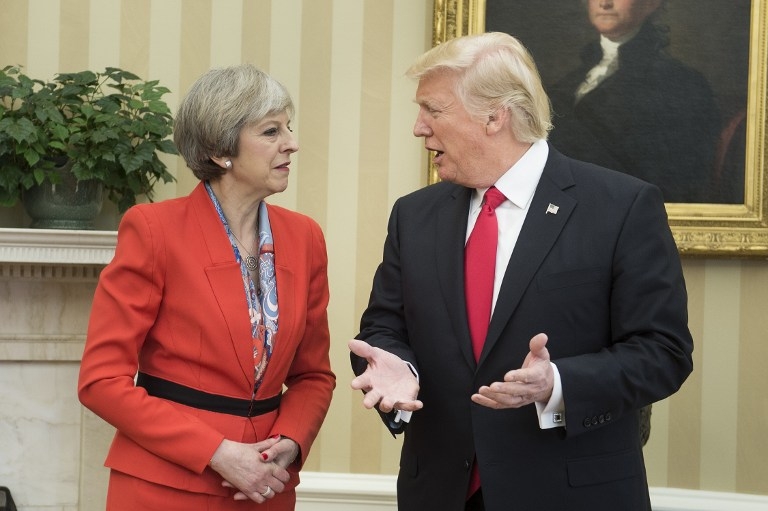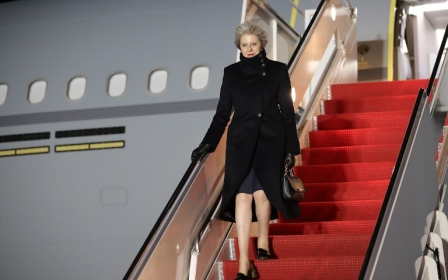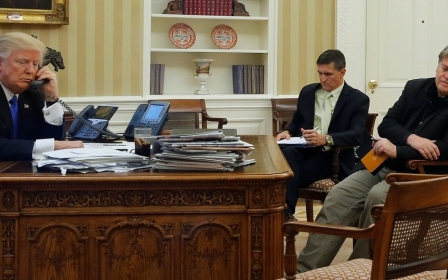Dear Theresa May, your policies make it hard to feel like I belong in Britain

Dear Mrs May,
You may see me as the daughter of a woman that government reports label as an oppressed or submissive mother. You may think I grew up in a segregated "ghetto".
I see myself as the daughter of a housewife who respected her husband and, despite the challenges faced by migrants, raised me in an ethnically diverse part of Manchester to follow Islam and have humanitarian values that transcend nationalities. I have always considered myself to be a proud British Muslim.
However, following the events of the past year and particularly the past few weeks, I’m struggling with being British.
Knowing that a majority of the population had voted in favour of a xenophobic, hate-filled campaign was frightening
Brexit was a pivotal point. Knowing that a majority of the population had voted in favour of a xenophobic, hate-filled campaign was frightening. I don’t believe everyone who voted to leave was racist, but I do feel that those who were racist did.
Brexit legitimised and normalised racism. It gave confidence to the far-right to "claim back our country" under the guise of "national sovereignty" and made me question how many closet racists there were around me.
The hundreds of abusive, Islamophobic responses I received on Twitter answered my question. Yet this and the scaremongering, Islamophobic Tory party Londonmayoral campaign are both something you’ve supported. With the consequent huge rise in anti-Muslim hate crime, how can you reassure me that no one will attempt to rip off my mum's hijab or my dad won’t be the next Mohammed Saleem?
As a Muslim parent, I’m ashamed that I have to stop my child, who is afraid of flying, from saying an Arabic prayer on an airline and to hide his faith for fear of being removed from the plane.
Will there be a time when I may be asked to leave the country because I'm considered a threat?
As a GP, I can have the most difficult conversations at work, yet have to shut down debate when my nine-year-old asks me who Islamic State is for fear of a Prevent referral from school the next day.
Do you realise the impact the Prevent duty legislation, that you made mandatory, is having on Muslim families and the way in which behaviours are being modified? Where are the safe spaces to have these conversations now?
Being a child to migrants who arrived in Britain in the early 1970s, I always sensed that they never really felt like they "belonged" despite being active members of the community and running a successful business. There always seemed to be a fear that they would be asked to leave the country and return to their homeland.
I used to think this was an irrational fear, yet the stark possibility of it one day becoming a reality has hit home over the past week as I’ve watched Donald Trump ban refugees from Muslim majority countries or US citizens with green cards because of their country of origin.
As the country stood shoulder to shoulder in protest against Mr Trump's racist ideologies, you stood hand in hand with someone whose values are the polar opposite of British values
You may distance yourself from this and state that what the USA does is for them to decide, and that the UK will manage their own refugees. But I question your sincerity as I am yet to hear your condemnation of this clearly discriminatory divisive order or your offer to take refugees of any substantial number.
Will there be a time when I may be asked to leave the country because I'm considered a threat? Or denied entry because I hold dual identity, as my parents always insisted that I have a Pakistani identity card in case we ever get asked to leave?
As the country stood shoulder to shoulder in protest against Mr Trump's racist ideologies, you stood hand in hand with someone whose values are the polar opposite of British values. I understand you weren't elected into your position by the people of this country.
However, as you do currently represent us, should you not listen to the 1.5 million who have petitioned and protested at the discrimination occurring? Or should I not really be surprised - after all you continue to support a health secretary who attempted to create a "them" and "us" in the NHS between foreign and British-trained doctors?
The demonisation of Muslims in the media is destroying my sense of belonging
I share your concerns about radicalisation. I wouldn’t want my children to be radicalised but they are at more risk of drug abuse, job discrimination, socioeconomic deprivation and domestic violence than they are of being radicalised or killed by an act of terrorism. Why aren’t these issues being addressed with as much, if not more, fervour?
If this really is about tackling radicalisation, then you need to admit the impact of demonisation and vilification of Muslims by the media, discriminatory legislation such as Prevent, xenophobic political campaigns, foreign policy and rising Islamophobia towards Muslims like me. It is destroying my sense of belonging.
This isolation is the real driving force behind radicalisation and, until these issues are addressed, I feel you will continue to fuel radicalisation and the so-called "war on terror" will never be won.
Many thanks,
A concerned 'British' Muslim
- Siema Iqbal is a mother, a doctor and a British Muslim with an opinion based in Manchester. She is currently a partner and trainer at a North Manchester GP practice. She enjoys writing and can often be found public speaking and raising money and awareness for charities both in the UK and abroad. In 2014, she also launched a business, Doctor Aesthetics, while continuing to be a busy mum to two boys.
The views expressed in this article belong to the author and do not necessarily reflect the editorial policy of Middle East Eye.
Photo: Prime Minister Theresa May greets President Donald Trump during her January 2017 visit to Washington. (Reuters)
New MEE newsletter: Jerusalem Dispatch
Sign up to get the latest insights and analysis on Israel-Palestine, alongside Turkey Unpacked and other MEE newsletters
Middle East Eye delivers independent and unrivalled coverage and analysis of the Middle East, North Africa and beyond. To learn more about republishing this content and the associated fees, please fill out this form. More about MEE can be found here.





